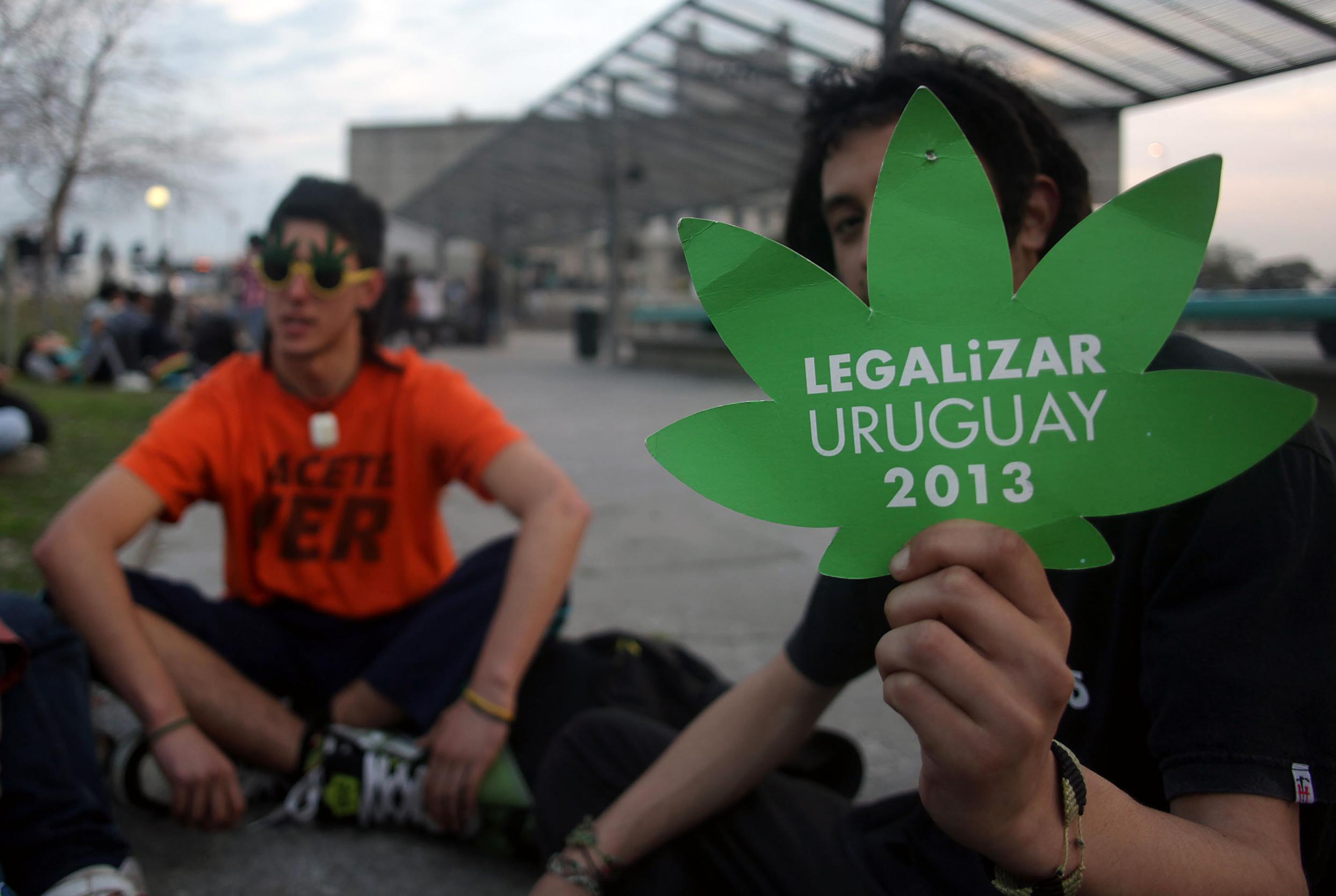On Slate today, Sam Kamin and Joel Warner analyze the regulatory challenges facing Colorado as it prepares to become the first state in the nation to legalize marijuana. This week Uruguay also embarked on a perhaps even more audacious experiment, when its Senate voted to legalize—and nationalize—the growth and sale of marijuana.
Under the law, which is supposed to be implemented within 120 days, Uruguayans will be able to grow up to six plants in their house a year or form smoking clubs to grow up to 99. Consumers over 18—sorry, backpackers, it’s for Uruguayan citizens only—will be able to by up to 40 grams (1.4 ounces) at government-licensed pharmacies each month. This differs from countries like the Netherlands, where the sale of marijuana is legal but producing it is not.
Weed will be sold for about $1 a gram, which is pretty cheap, though given that as Roberto Ferdman points out, Uruguay has the third-highest percentage of pot smokers in the region, the government stands to make a tidy profit, which it says will go toward law enforcement and drug treatment programs.
Geoffrey Ramsey of InSightCrime has a good analysis of some of the obstacles the experiment is likely to face. While President José Mujica has supported the bill and will likely sign it into law soon, Uruguay is holding national elections next year, and since the majority of the population is still against legalization, the law could give ammunition to his opponents.
For the experiment to work, the government has to produce enough marijuana to satisfy demand, while avoiding excess, and prove that it can crack down on and marginalize the drug cartels.
The move has been heavily criticized by neighboring Brazil and Argentina as well as the United Nations. But it’s also being watched closely in a region fed up with years of brutal and seemingly pointless drug violence. Much to Washington’s dismay, Latin American leaders—notably Otto Pérez Molina of Guatemala and Laura Chinchilla of Costa Rica—have been talking openly about the possibility of legalization. Unless Uruguay’s experiment turns into a complete fiasco, other countries are likely to follow its lead soon.
